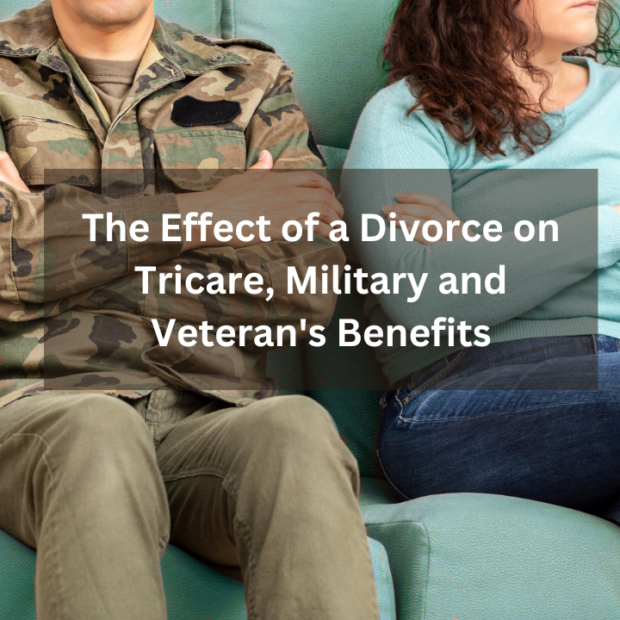The Effect of a Divorce on Tricare, Military and Veteran’s Benefits
Americans owe so much to those who serve or have served in our armed forces. As part of our nation’s obligation to these heroes, military personnel and veterans are entitled to various benefits, some of which extend to their spouses. Many of these spouses who rely on the Tricare health program and other benefits associated with their partner’s military service might worry about what will happen to them if they get a divorce.
Tricare refers to the member of the armed force as the sponsor of a spouse’s coverage. There are two scenarios for which someone can continue accessing Tricare benefits after ending a marriage to their sponsor. They are:
- The 20-20-20 rule for lifetime coverage — An ex-spouse can become a Tricare beneficiary in their own right if their sponsor had at least 20 years of military service, if the marriage lasted for at least 20 years and at least 20 years of marriage overlapped with the creditable military service time. A former military spouse who qualifies under this rule also maintains their access to the base or post exchange.
- The 20-20-15 rule for one year after the divorce — Tricare benefits are provided for one year if they were married to the sponsor for at least 20 years, the sponsor had at least 20 years of creditable military service and the marriage and service overlapped for between 15 and 20 years.
Under either rule, you would lose your Tricare benefits if you remarry or obtain health insurance coverage through an employer-sponsored plan.
Disability benefits collected by a veteran as a result of a service-related medical condition are not subject to asset division in a divorce. However, you should keep in mind that the income resulting from these benefits can be included in calculations used to set child support and spousal maintenance terms. Military retirement pay is treated as any other type of retirement asset and the amount accumulated while a couple was wed does fall within the marital estate just as a civilian pension or 401(k) account would.
Bryan L. Salamone & Associates, P.C. is the Long Island divorce leader and is proud to represent clients who have served our country and their families. If you have a question about any aspect of the New York marriage dissolution process, including the disputation of military or veterans’ benefits, we can help. Please call 1.631.479.3839 or contact us online to schedule a consultation.
Further reading about military divorce:
Unique Elements of Military Divorces
Military Divorce Rate Remains Steady While Marriages Fall
Custody and Support Issues for Military Parents
Unique Factors that Influence Military Divorces
Analysis of Military Divorce Rates Shows Female Personnel Divorce Slightly More Often
Can a Veteran’s Spouse Claim VA Benefits During Divorce?
Some Careers Have Significantly Higher Divorce Rates than Others






